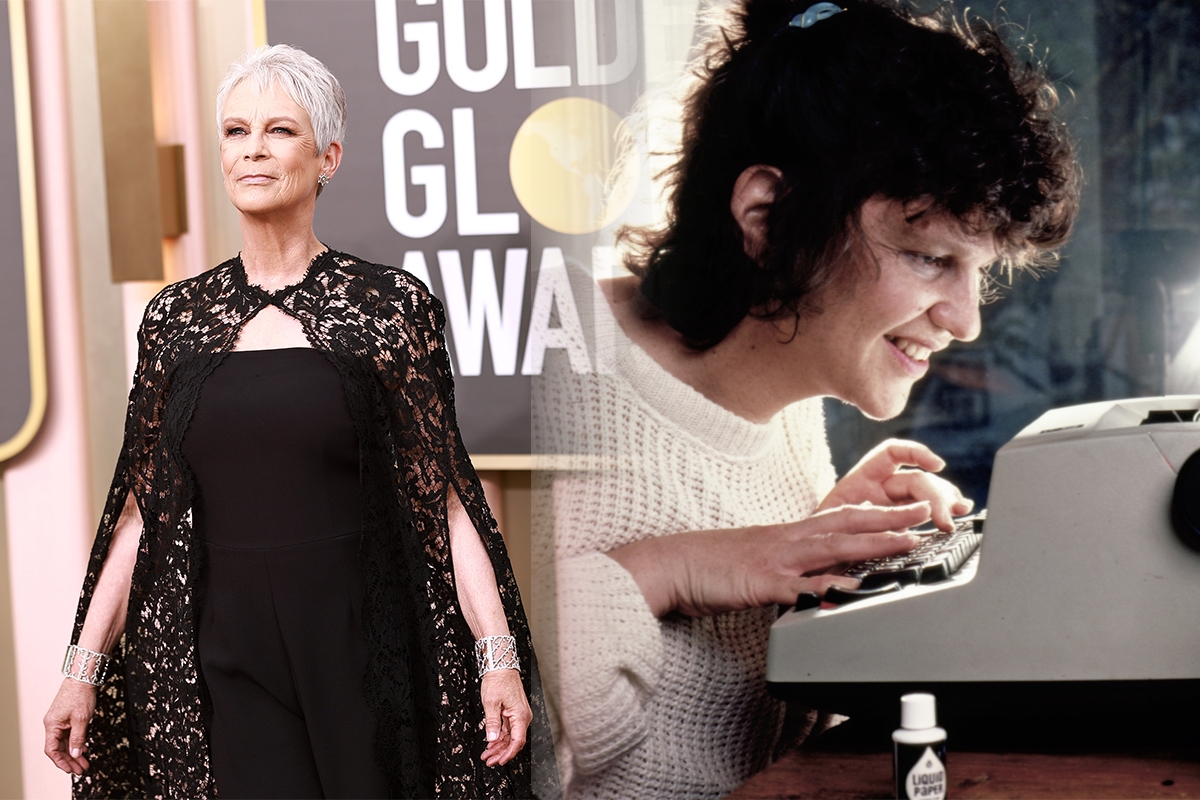Michelle Yeoh won such a well-deserved Golden Globe this week for her role in the trippy, excellent movie “Everything Everywhere All At Once.” And while it was Steven Spielberg who brought up the word “kvelling” that night in his acceptance speech about his late mother, it was Yeoh’s co-star, Jamie Lee Curtis, who taught us a masterclass in the meaning of that word.
To kvell is to show pride in others’ accomplishments — and while some say it should be done quietly, especially when it comes to one’s children’s accomplishments, Curtis showed us how one can loudly and proudly, without centering yourself, show pride in the accomplishments of friends.
Photos of Curtis hooting up a storm as Yeoh got overwhelmed with emotion when her name was announced as Best Actress went viral, and the gist of the captions amounted to some solid advice: In your friendships, always be the Jamie Lee Curtis. We all need a friend like Jamie.
View this post on Instagram
A LinkedIn post by Erin Gallagher urged other women to, “De-condition and unlearn what you’ve been wired to think: that women are your competition. It’s a trap. Meant to distract us. And to keep us keeping each other down. Find your Jamie. Hype their Jamie. Be her Jamie.”
The post got to Curtis herself, who, in an Instagram post she shared on Thursday, revealed that she learned an important lesson about being a hype woman from the great Jewish playwright Wendy Wasserstein.
Curtis wrote that when she starred in the film adaptation of Wasserstein’s play, “The Heidi Chronicles,” all the way back in 1995, she was inspired by Heidi Holland’s final speech to a cohort of privileged, rich, material-focused women that she went to high school with. And it was the last line of that speech that especially struck Jamie: “Women, where are we going?”
Curtis wrote, “She talks about the fact that even though the women’s movement was about UNITY, it now, years after, sadly was just about competition and beating the other girl out of jobs, men and clothes. She says at the end ‘I thought the point was that we were ALL in this together.'”
“WELL, WE ARE!” Curtis summed up.
Curtis was actually nominated for a Golden Globe for that particular role, just like she was for her role in “Everything Everywhere All At Once” — in both cases, she didn’t win. (She does have two Golden Globes, one for her role in the 1990 TV show “Anything But Love,” and the other for her role in the 1995 film “True Lies.”)
It’s moving that almost two decades after she starred in the film, those words and the sentiments that Wasserstein portrayed in “Heidi” still stand out to Curtis as a guiding principle for her support of other women.
Jewish playwright Wendy Wasserstein was born in Brooklyn in 1950. A self-avowed feminist, she often wrote about nuanced, complicated women. She also made history as the first woman playwright to win a Tony for the 1988 “The Heidi Chronicles” (in the 1950s, Jewish actress and playwright Frances Goodrich did win a best play Tony for “The Diary of Anne Frank,” but she shared it with her husband, Albert Hackett). Wasserstein also received a Pulitzer prize for the play.
“The Heidi Chronicles” follows Heidi Holland, an art history lecturer, from her teens to her 40s, and from the 1960s to the ’80s through the political tumults of the time and the rise of feminism in art. Some “Heidi” theater and Broadway alums include Joan Allen, Caroline Aaron, Sarah Jessica Parker, Cynthian Nixon, David Hyde Pierce and Tony Shalhoub. The most recent production of the play on Broadway was in 2015 starring Elizabeth Olsen and Jason Biggs.
Wasserstein’s plays, which were both poignant and laugh-out-loud funny, often focused on powerful women, and often involved Jewish topics, including her 1995 “The Sisters Rosensweig” about three Jewish sisters. Wasserstein described it once as a play about being Jewish, but it memorably portrayed a woman in her 50s falling in love, not something that was often seen in plays and pop culture at the time (honestly, still not).
Wasserstein came from a rich Jewish tradition. Her grandfather was a Yiddish playwright and school principal in New Jersey who immigrated from Poland. Her father was a textile man — “we used to say he invented velveteen, he invented putting wires into ribbons,” she said in an interview.
But her mother Lola was the biggest inspiration behind her work, a dancer and theater aficionado who sent Wasserstein to the Helena Rubinstein charm school. In interviews, Wasserstein described her mother as larger than life, once recalling to Jay Leno that she once saw her in Manhattan walking “in leather pants and a denim jacket that said ‘Lola’ on the front.”
Wasserstein also learned a lot of her theater lessons at, where else, her synagogue. “I think in many ways my idea of show business comes from temple; not that I really practice, but that sense of community, melancholy and spirituality is there.”
The controversial ending of “The Chronicles of Heidi” shows Heidi adopting a baby by herself — a choice Wasserstein herself made in 1999 when she had her daughter, Lucy Jane.
Wasserstein was a prolific, deeply funny and deeply human writer. She passed away in 2006 from lymphoma at age 55. It’s heartrending to think of how many more great works we could have had of hers, but it’s definitely wonderful to see how her words still inspire someone as equally admirable as Jamie Lee Curtis.
It’s also a great opportunity to revisit her amazing and ample body of work — from books, to plays, to movies. May her memory be for a blessing.








